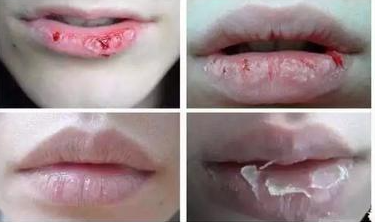
That feeling of a parched mouth is a universal signal. You’ve eaten something salty, you’ve been working in the sun, or you simply haven’t drunk enough water. The solution is straightforward: you take a long, cool drink, and the problem is solved.
But what happens when the solution stops working? When you’re drinking water constantly, carrying a bottle with you everywhere, yet your mouth still feels like it’s filled with cotton? This isn’t ordinary thirst. This is a persistent, unquenchable dryness that no amount of water seems to fix. It’s a frustrating and often isolating experience.
This condition, known medically as xerostomia (zeer-oh-STOH-mee-uh), is your body’s way of waving a red flag. A constant dry mouth, regardless of water intake, is rarely about hydration alone. It points to problems beyond thirst, often involving your nervous system, your hormones, or an underlying autoimmune condition.
Think of your salivary glands not as simple sponges, but as sophisticated factories that are operated by remote control. That remote control is your autonomic nervous system. When the signal from the control center is disrupted, the factories slow down or stop production, no matter how much raw material (water) you supply.
Here are the critical issues your dry mouth may be trying to reveal.
The Problem: A Misfiring Nervous System (Often Medication-Related)
This is, by far, the most common culprit, especially for adults managing multiple health conditions.
- How It Works: Over 400 common medications list dry mouth as a side effect. These include drugs for high blood pressure, allergies (antihistamines), depression, anxiety, pain, and incontinence. These medications often work by blocking neurotransmitters, like acetylcholine, which is the specific chemical signal that tells your salivary glands to “turn on.”
- The Message: Your dry mouth is a direct side effect of a treatment you’re taking for another issue. It’s a sign that the medication is doing its job systematically, but with a localized, uncomfortable consequence. It’s your body’s way of saying the chemical balance has been shifted.
The Problem: An Autoimmune Misdirection (Sjögren’s Syndrome)
When your dry mouth is accompanied by extremely dry eyes and perhaps joint pain, it’s time to pay very close attention.
- How It Works: Sjögren’s (pronounced SHOW-grins) Syndrome is an autoimmune disorder where your body’s own immune system mistakenly attacks the moisture-producing glands, most notably the salivary and tear glands. It’s as if your internal defense force has been tricked into sabotaging your personal hydration factories.
- The Message: This is more than a symptom; it’s a central feature of a systemic disease. The dry mouth is a key diagnostic clue that the problem is rooted in your immune system’s programming, requiring a rheumatologist’s care to manage the broader condition.
The Problem: A Metabolic Disruption (Diabetes)
High blood sugar creates a chain reaction that directly leads to dehydration at a cellular level.
- How It Works: When blood sugar is persistently high, your kidneys go into overdrive to try and filter it out, pulling excess fluid from your tissues to produce more urine. This leads to overall dehydration, which manifests as a dry mouth. It’s one of the classic “3 P’s” of diabetes: Polyuria (frequent urination), Polydipsia (increased thirst), and a dry mouth can be a part of this cycle.
- The Message: Your dry mouth could be an early warning sign of pre-diabetes or undiagnosed diabetes. It’s your body’s signal that it is struggling to manage its energy supply, leading to a systemic fluid imbalance.
The Problem: Hormonal Shifts (Menopause)
For women in their middle years, fluctuating hormones can be a primary cause.
- How It Works: Estrogen has a significant influence on the mucous membranes throughout the body, including those in the mouth. As estrogen levels decline during perimenopause and menopause, many women experience a noticeable dryness in the mouth and eyes.
- The Message: The dry mouth is part of a broader physiological change. It’s a sign that your body’s hormonal landscape is shifting, affecting tissues system-wide.
Why This Matters Beyond Comfort
Ignoring a chronically dry mouth isn’t just about enduring discomfort. Saliva is a miracle fluid. It’s your mouth’s first line of defense, neutralizing acids, washing away food particles, and containing enzymes that begin digestion and fight bacteria. Without it, you are at a significantly higher risk for:
- Rapid tooth decay and cavities.
- Gum disease.
- Oral thrush (a fungal infection).
- Difficulty speaking and swallowing.
What to Do
- Review Your Medications: With your doctor or pharmacist, review every prescription and over-the-counter drug you take.
- See Your Doctor: Describe your symptom precisely: “I am drinking plenty of water, but my mouth is constantly dry.” Blood tests can check for diabetes, vitamin deficiencies, and markers of autoimmune issues like Sjögren’s.
- Stimulate Saliva: Sugar-free gum or lozenges can help. Your doctor may also prescribe saliva-stimulating medications.
- Practice Meticulous Oral Hygiene: This is non-negotiable. Be diligent with brushing, flossing, and regular dental check-ups to prevent the secondary consequences.
A constant dry mouth is a plea for a diagnosis, not just a drink of water. By listening to this signal, you’re not just seeking comfort; you’re uncovering a critical clue about your body’s internal communication system, one that could lead you to address a much more significant health issue at its root.